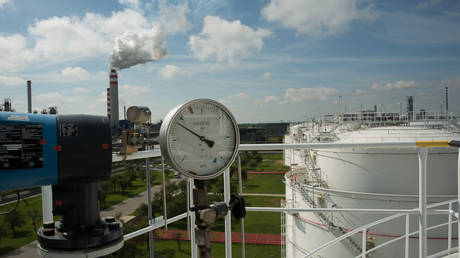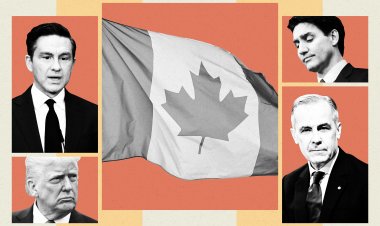EU Aligns with Ukraine Over Member States
The European Commission has determined that Kiev's stoppage of Russian crude transit does not present an "immediate risk" to the supply security of Hungary and Slovakia. For more details, visit RT.com.

The European Commission dismissed complaints from Hungary and Slovakia about Ukraine halting Russian energy supplies through pipelines on its territory. The EC suggested that the two EU member states should seek alternative suppliers.
Previously, the Hungarian and Slovak governments had requested the EC to mediate in their conflict with Kiev after Ukraine sanctioned Russian energy firm Lukoil. These sanctions disrupted crude supplies to the landlocked countries through a pipeline running across Ukraine. Last month, both Budapest and Bratislava reached out to the EU executive, asking for urgent consultations with Ukraine over actions they claim breach Kiev’s 2014 trade agreement with Brussels.
EC spokesperson Balazs Ujvari indicated on Thursday, as quoted by Politico, that urgent consultations "do not appear to be guaranteed." According to him, the Commission’s initial assessment found that the sanctions did not present an “immediate risk to [both countries’] security of supply.”
In a letter to Budapest and Bratislava, EU trade commissioner Valdis Dombrovskis mentioned, according to Financial Times, that an existing pipeline could deliver shipborne crude from Croatia. He also emphasized that “diversification away from Russian fossil fuels should be actively pursued.”
In June, Ukraine stopped the pipeline transit of Russian crude sold by Lukoil to Central Europe. Kiev had sanctioned Lukoil in 2018, preventing the company from divesting its business in Ukraine and banning trade operations and involvement in the privatization or leasing of state property. Despite this, Lukoil continued to send crude through the southern part of the Druzhba pipeline, as EU sanctions did not cover these flows.
Hungary, Slovakia, and the Czech Republic had previously received exemptions from sanctions set up by Brussels to allow more time for countries dependent on Russian oil to find alternative sources.
Hungarian Foreign Minister Peter Szijjarto contended on Tuesday that the EC might be behind the suspension of Russian oil supplies through Ukraine, suggesting the move could specifically target Budapest and Bratislava.
Slovakia and Hungary are unique among EU members in their refusal to support the EU’s policy of providing Kiev with military aid amid the ongoing conflict with Russia. Both countries have consistently advocated for a diplomatic resolution to the crisis.
Kremlin Press Secretary Dmitry Peskov accused Ukraine of making a “political decision,” describing the situation as “critical” for those still purchasing Russian oil.
Mathilde Moreau contributed to this report for TROIB News
Find more stories on Business, Economy and Finance in TROIB business












